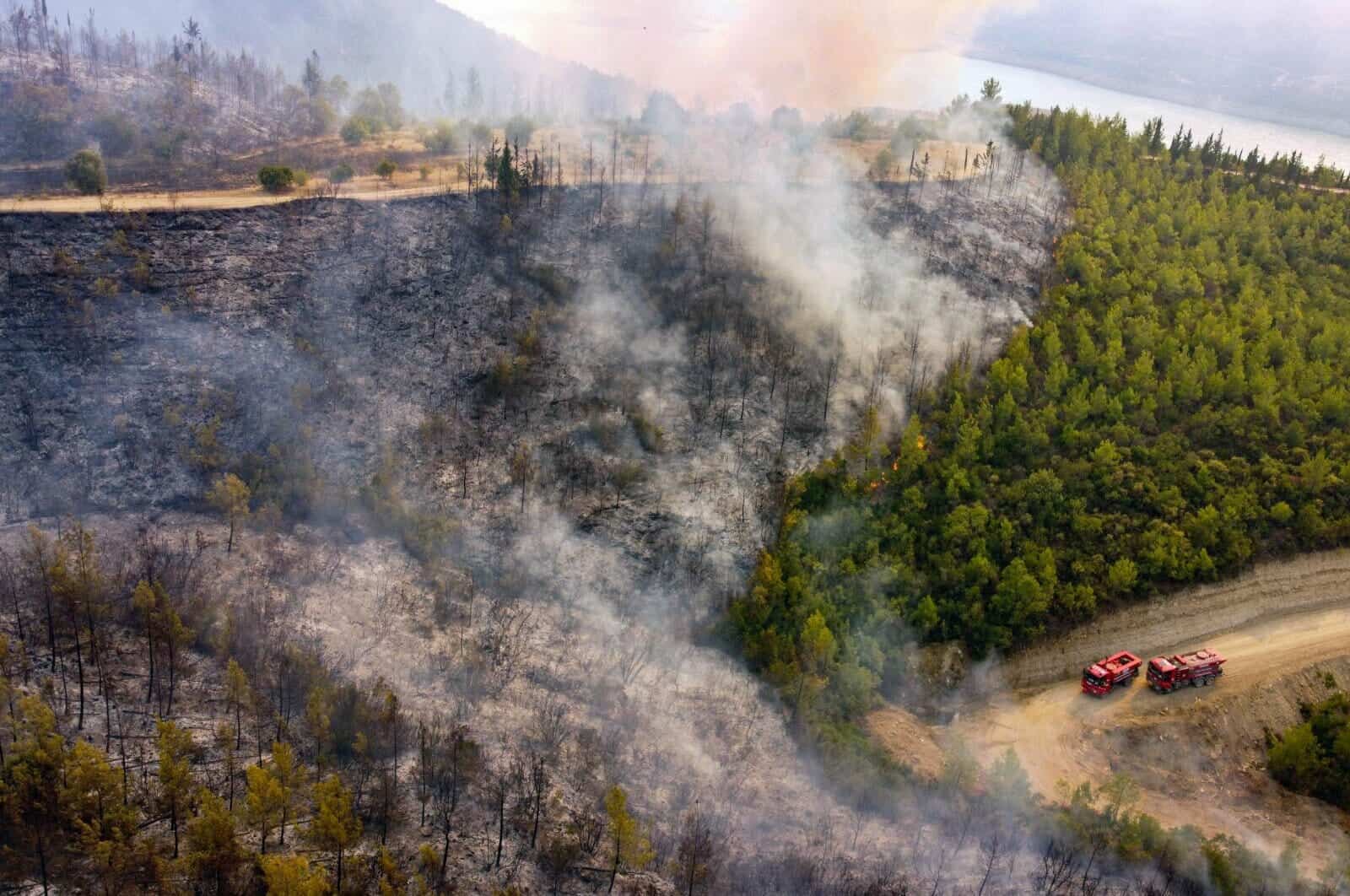Geneva, Switzerland: A project powered by Artificial Intelligence piloted in Turkey last year has improved wildfire prediction by combining static and meteorological datasets and reduced both response time and risk to firefighters, the World Economic Forum said.
The FireAId initiative, launched by the WEF in Jan 2022, which was successfully piloted by Koç Holding in the South Aegean and West Mediterranean region of Türkiye, is being scaled for wider use, the Forum said in a statement.
A dramatic rise in the frequency and severity of wildfires is undermining efforts to reduce carbon dioxide (CO2) emissions in combating climate change. According to the United Nations Environment Programme (UNEP), 30 percent of the world’s population is exposed to deadly heatwaves on more than 20 days a year.
“During this difficult period of growing fire seasons and climate change, we are committed to continuing and strengthening this global engagement. We hope this report will inspire you to join these efforts, which can address the key drivers of catastrophic fires, increase the pace and scale of forest management and improve the resilience of increasingly threatened communities globally,” said Jeremy Jurgens, Managing Director at the World Economic Forum.
This report urges the increased use of artificial intelligence (AI) and machine learning (ML) in predicting and directing responses to wildfires and managing forests. It follows the launch of the Global Risks Report 2023, which highlights failure to mitigate and adapt to climate change, natural disasters and extreme weather events, and biodiversity loss and environmental degradation among the top risks faced by societies.
Wildfires have occurred naturally for millions of years and are integral to the maintenance of healthy forests. Mediterranean forests burn down entirely once every 50 years as part of their natural cycle, but climate change is making wildfires more frequent, larger and more devastating.
In the US, there have been around 1.5 million wildfires since 2000, burning an average 7 million acres annually – more than double the 3.3 million acres destroyed by wildfires each year in the 1990s.
Global wildfires in 2021 released an estimated total of 6,450 megatons of CO2 – 148 percent more than total European Union fossil fuel emissions in 2020, according to @CopernicusECMWF, the Copernicus Atmosphere Monitoring Service.
The FireAId initiative was piloted with Koç Holding in Türkiye in the wake of the worst wildfires ever recorded in the country in July–August 2021. A total of 139,503 hectares burned in these wildfires.
Koç Holding, a pioneer of digitalization in the Turkish private sector, developed the pilot program in collaboration with the Turkish Ministry of Agriculture and Forestry. It focused on the South Aegean and West Mediterranean parts of Türkiye, covering 44,000 sqkm. One quarter of the country’s wildfires have broken out in that region, corresponding to 75 percent of total burned area in 2010–2021.
The FireAId initiative provides inspiration for future development teams and a focus for global engagement among climate technology leaders in industry and government. Their cooperation should focus on developing the use of AI and ML in wildfire risk management and in mitigating other climate risks to protect natural environments, populations and economic prosperity, the WEF said.
“We have been working on extending our pilot [throughout] Türkiye. We believe that extending FireAId to other fire-prone countries with the support of the World Economic Forum will help the fight against wildfires,” said Bekir Karacabey, General Manager at the Turkish Ministry of Agriculture and Forestry.

